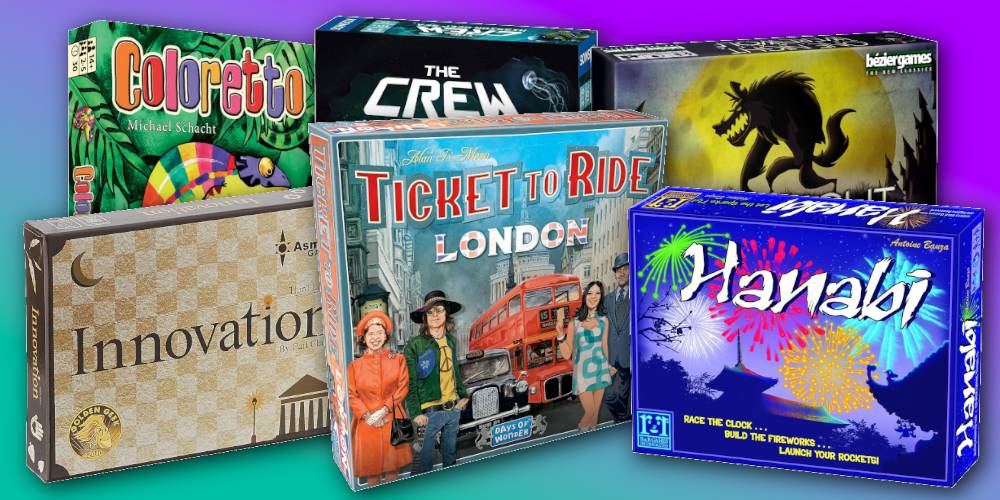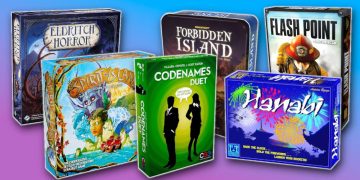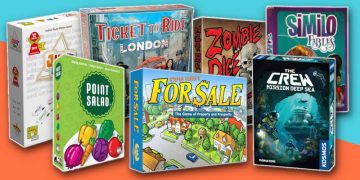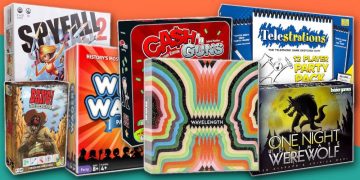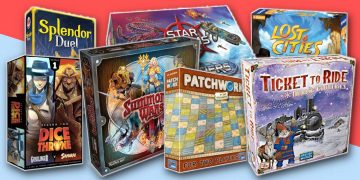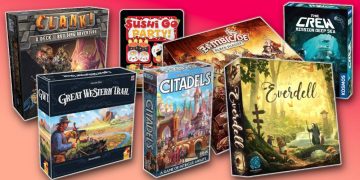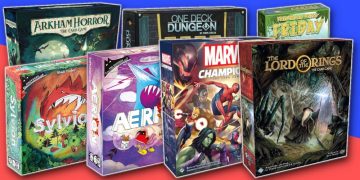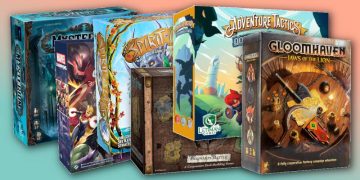There are thousands of excellent board games and card games out there, but many of them cost a pretty penny. Does that mean this hobby is only viable for the rich and fortunate? No, absolutely not!
If you're strapped for cash—we've all been there—rest assured that you have options. There are plenty of budget-friendly board games that pack a punch without burning a hole in your wallet.
Admittedly, a lot of these are card games. After all, cards are some of the cheapest components in a game, which helps keep the cost down. But I'm also including several "real" board games, too.
You don't have to drop hundreds of dollars for a solid library of games with exceptional gameplay and pleasing artwork. Here are some of the best cheap board games worth checking out!
Note: What counts as "cheap"? Generally, mass market board games start around $25, substantial board games cost $40+, and huge board games with tons of components cost $80+.
If you ask me, any board game that can be acquired at retail for around $15 or less is really cheap. The board games below are still in print and in that price range!
15. Coloretto
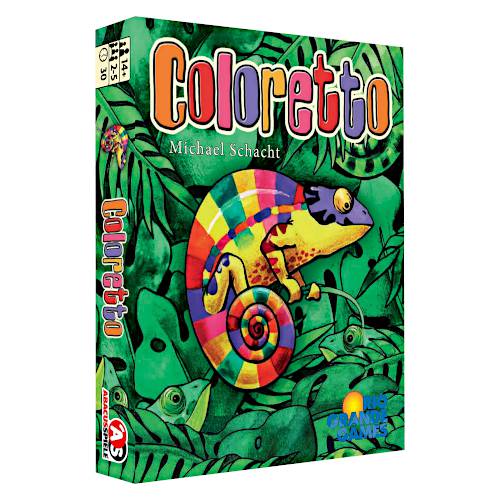
Coloretto is an amazing little card game that mixes set collection with a little bit of push-your-luck to create tense rounds.
The game is played using a deck of 7 different colors, with 9 cards of each color. (Plus a few other card types that spice up the gameplay.) Your goal is to collect as many cards as you can in 3 different colors.
Here's the twist: on your turn, you draw a card and then play that card to one of a few public columns. When a column is full, players can choose to take the cards of a column (instead of drawing and playing).
The tension rests in trying to dole out cards in a way that's helpful to yourself but not too helpful to the other players, and then finally collecting the right columns to bolster your sets.
14. Hanabi
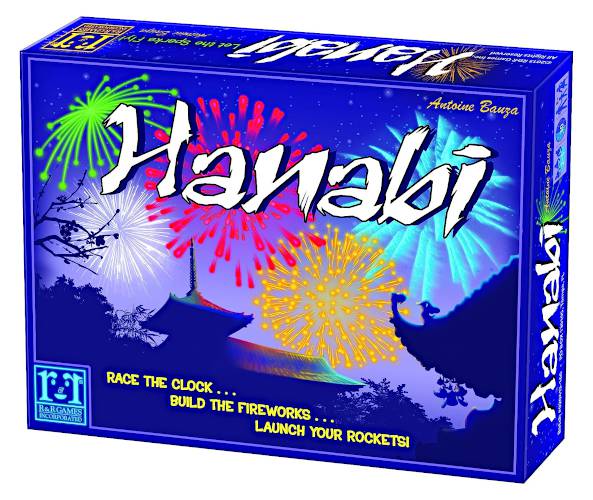
Hanabi is an unusual game because you have a hand of cards but your cards face outward—you can't see your own cards, but everyone else can see your cards, and you can see everyone else's cards.
In this cooperative game, you're all trying to play your cards to the table in the proper sequence, but you can only give certain types of hints to other players, and you only have a limited number of hints to give.
Hanabi isn't the kind of game that will appeal to everyone, but it's a fantastic puzzle-type experience with a lot of replayability—if you find limited communication to be interesting.
13. No Thanks!
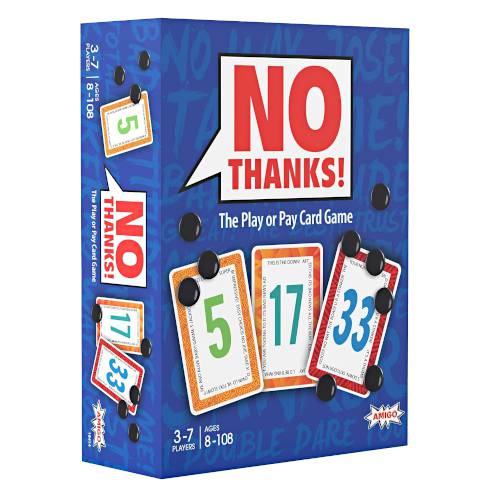
No Thanks! is a card game where you're trying not to collect cards. The deck consists of cards numbered 3 to 35, and collecting a card gives you that many points. You want fewer points than everyone else.
Every round, a card is drawn. Players take turns refusing to take the card—however, to refuse, you must throw in a chip. If you don't have any chips left, you must take it. (Or you can prematurely choose to take it.)
When you take a card, you get all the chips on it as well, which equips you to refuse more cards down the line. Also, if you collect sequential cards, they group together and are only worth the lowest card's value!
No Thanks! is a game where you must maneuver yourself into a position where you aren't forced to take bad cards, by making smart decisions of when to take cards that are loaded with chips.
12. Timeline
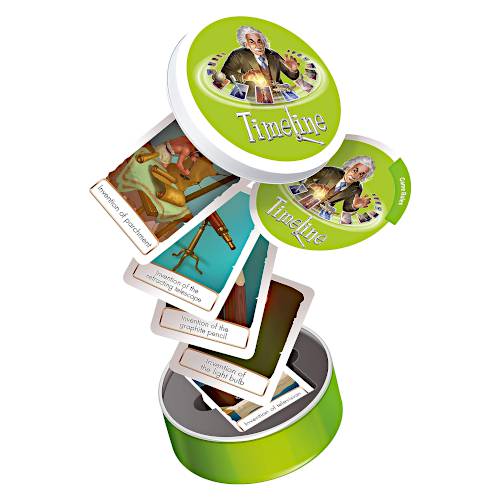
Timeline is a fantastic little game where players take turns playing cards to a timeline, attempting to place each event in its correct position relative to the existing events in the timeline.
Every card in Timeline has a year on the back, which is revealed once you determine where you want to play it.
The great thing about Timeline is that you don't need to know the exact year of when something happened. You just need to know if it happened before or after certain events—and you can definitely reason your way to victory by simply thinking things through.
Note: Timeline is available in several different theme decks. They all work well independently, but you can combine them to create a larger, more varied, and more difficult deck.
In addition to Timeline: Events, there's also Timeline: Classic, Timeline: Inventions, Timeline: British History, and a few others.
11. Anomia
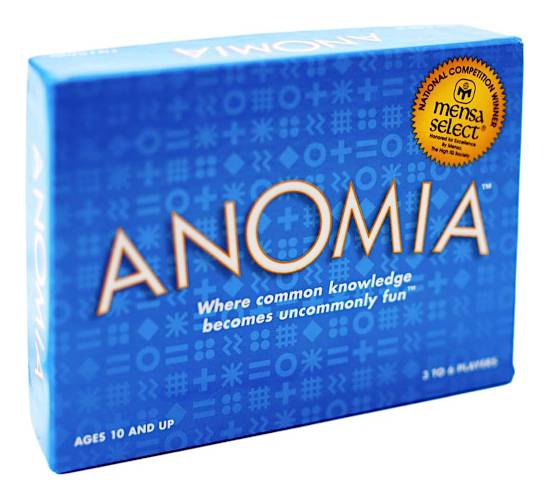
Anomia is a crazy fun party game that'll have you clawing at your brain as you struggle to recall words that are on the tip of your tongue.
In Anomia, players take turns drawing cards, where each card has a random word and a symbol on it. The words might say something like "Vegetable," "Sitcom," "Last Name," or "Musician."
If the symbol on your current card matches the symbol on a freshly drawn card, you must immediately name an example of the word on their card before they name an example of the word on your card.
Anomia is so simple and yet packs so much fun. It comes with a hundred cards and supports up to six players for a grand old time.
Note: If you're worried about playing through it too quickly, you can supplement it with Anomia: Party Edition, which has 400+ more cards that don't overlap with base Anomia.
10. Point Salad
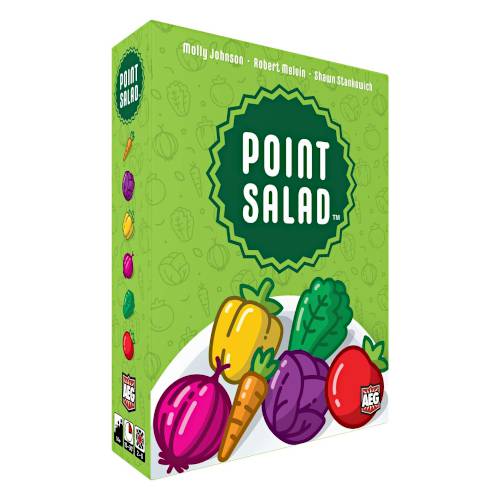
Designed by Molly Johnson, Robert Melvin, and Shawn Stankewich
Supports 2 to 6 players
About 15 to 30 minutes
Point Salad is frantic fun in a box, topped with a healthy dash of cute art that's family-friendly and welcoming to all.
In Point Salad, players take turns drafting from a central pool of cards. Each card is two-sided: on one side, it's one of several different vegetables (e.g. Lettuce, Tomato, Onion), and on the other side, it provides a unique scoring condition using the vegetables.
Turn by turn, players will amass a collection of vegetables and scoring conditions—and cards can sometimes be flipped between them—which are then scored when the deck runs out.
Point Salad is a solid combination of strategy, luck, and chaos. And with games rarely taking up to 30 minutes, you'll usually end up playing this one several times in a row whenever it's brought out.
9. Star Realms
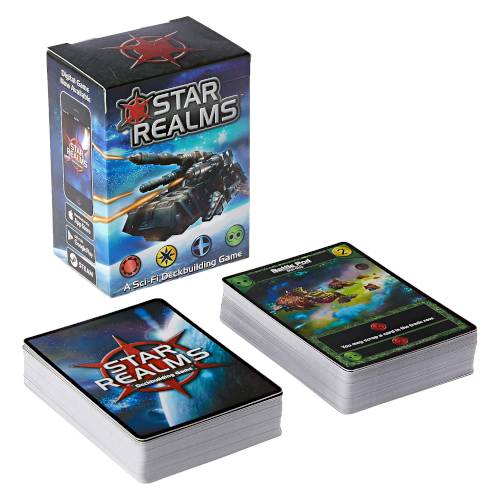
Star Realms is a deckbuilding game in which you face off against another player in a race to take over the galaxy and reduce your opponent to zero health (which, in this case, is called "authority").
Over the course of the game, you'll be acquiring different cards to your own personal deck, and these cards allow you to acquire even more cards, or inflict damage, or absorb incoming damage. It's tense, it plays quickly, and it has lots of replayability.
Although Star Realms was originally designed as a two-player card game, you can combine multiple copies to play with multiple people. However, I recommend sticking with two players—that's where it shines best.
Note: If you can save up a little more, I recommend getting the Star Realms Box Set, which includes the base game, the Gambit Set expansion, two extra starting decks, and a playmat!
8. One Night Ultimate Werewolf
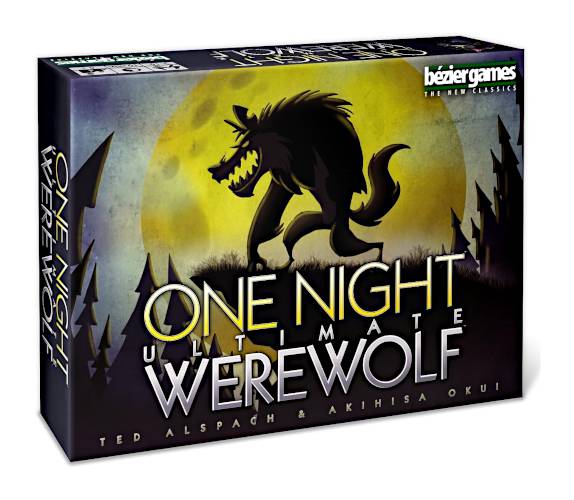
If you're in the market for an inexpensive social deduction game that's an absolute blast for large parties, it doesn't get better than One Night Ultimate Werewolf. It's one of the best of its kind.
The beauty of One Night Ultimate Werewolf is that it distills the gameplay of Werewolf (also called Werewolf or Mafia) into a single night, removes the need for a moderator, and cranks it up with special abilities.
Everyone gets a secret role and only one person will be eliminated—the trick is to make sure that person is a werewolf.
One Night Ultimate Werewolf plays in under 10 minutes and it's so easy to play again and again and again. If you have a regular group of 4+ players who like this genre, you'll get tons of plays out of this one.
7. Coup
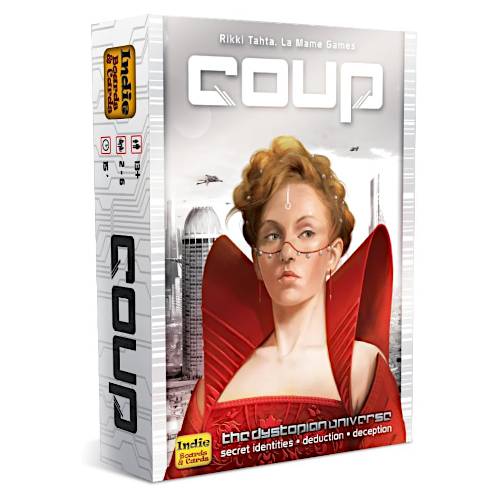
In the dystopian world of Coup, you play against your opponents in a cutthroat game of deception, bluffing, and dominance.
In Coup, there are five different characters that each have unique abilities, and each player starts with a secret hand of two characters. (There are multiple copies of each character card in the deck.)
On your turn, you can activate one of your character's abilities. Here's the twist: you can claim to have a character even if you don't, which means you can do pretty much anything on your turn.
However, if someone calls you out and you don't actually possess that character? You permanently lose one of your cards. If you lose both, you're out of the game. Last one standing wins.
Note: If you're going to play Coup with just two players, I highly recommend skipping the official 2-player variant and playing with the ultimate 2-player variant of Coup!
6. Love Letter
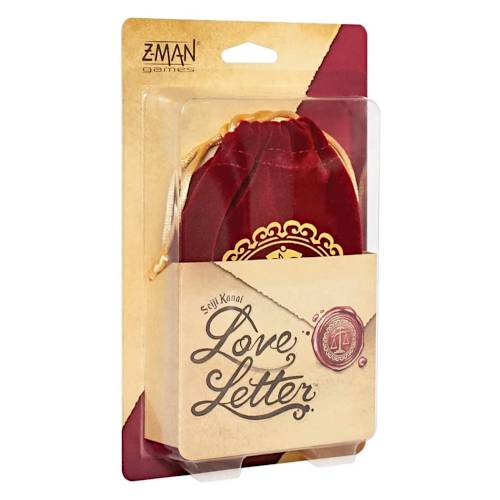
Love Letter is one of the simplest card games you'll ever play, but there's a lot of fun gameplay packed into it.
At its core, Love Letter has only two actions on your turn: first, you draw a card, then, you play a card. The cards are numbered from 1 to 8, and each card has a unique ability on it.
The goal is to have the highest value card in your hand at the end, but certain cards will cause players to be eliminated for varying reasons, so it's not as easy as simply getting rid of your lowest value card.
5. Innovation
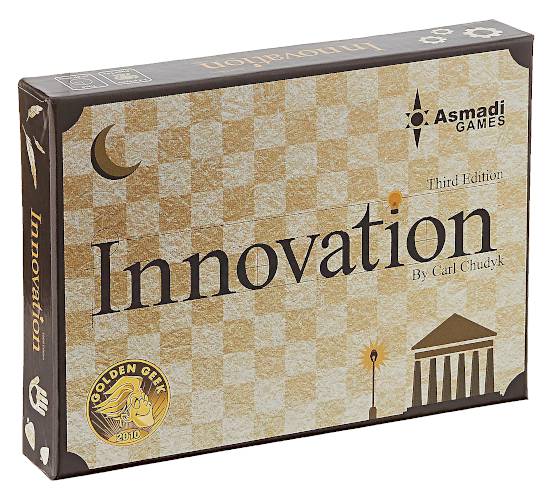
Innovation is a bit of an outlier on this list, if only because it's significantly more complex than the rest of these games. Most games in the $15 price range are light and quick, but this one packs a big punch.
Over the course of an hour or so, players will take turns racing to develop their civilization and progress through various ages, starting in the stone age up through the modern era. You do this by collecting cards.
Every card you collect grants you a special ability, plus icons that represent your growing mastery of different ideas and technologies. But when you use a special ability, other players who are equally advanced in that ability's icon type will get a free action.
Innovation has relatively simple rules that drive a complex game, and that means lots of strategic depth and replayability. You'll be hard-pressed to find another game of this level at this price point.
4. Railroad Ink: Deep Blue Edition
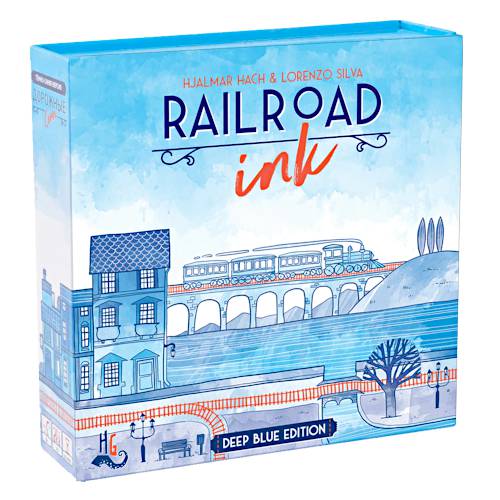
Designed by Hjalmar Hach and Lorenzo Silva
Supports 1 to 6 players
About 20 to 30 minutes
Railroad Ink is a delightfully relaxing roll-and-write game with a spatial element. You'll be drawing on a grid of cells, trying to connect the various roads and railroad tracks around the perimeter.
Every round, a set of custom dice are rolled, and each face on these dice shows a different kind of road, track, or obstacle. You have to add all of those faces to your grid, but you get to choose where to place them.
You earn points for various criteria—like how many exits are connected, how much of the central area you filled in, whether you have the longest road—and the highest scorer wins!
Note: There's also Railroad Ink: Blazing Red Edition, which has the exact same base gameplay as Railroad Ink: Deep Blue Edition but differs in the two expansions that come included.
The Rivers and Lakes in Railroad Ink: Deep Blue Edition are more relaxing to play with, whereas the Lava and Meteors in Railroad Ink: Blazing Red Edition are more destructive and adversarial.
3. Sprawlopolis
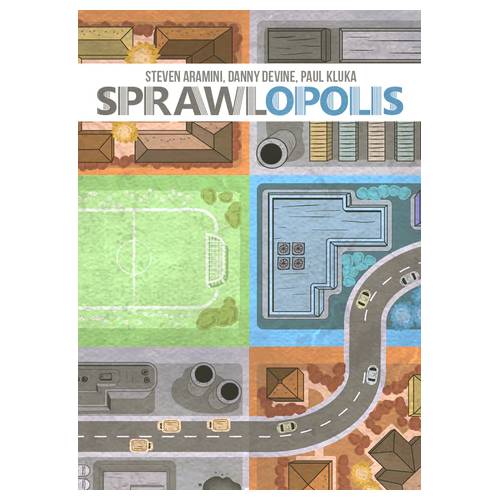
Designed by Steven Aramini, Danny Devine, and Paul Kluka
Supports 1 to 4 players
About 15 to 20 minutes
Sprawlopolis is technically a cooperative game, but it's such a tightly designed puzzle-type game that it's best played solo.
In this 18-card game, every card is divided into quadrants, with each quadrant representing a different type of city zone (e.g. Residential, Park, Commercial, Industrial). The back of each card has a unique scoring condition that gives you specific goals to work toward.
Three of the cards are randomly chosen for their scoring conditions, then the remaining 15 cards are placed—adjacent or overlapping—to create contiguous regions of the varying city zone types. There are also roads that go through some zones, complicating decisions further.
Sprawlopolis remains one of the greatest releases by Button Shy Games, who specialize in micro-style 18-card games. At this price, I don't think you'll find a deeper and more engaging option.
2. Ticket to Ride: London
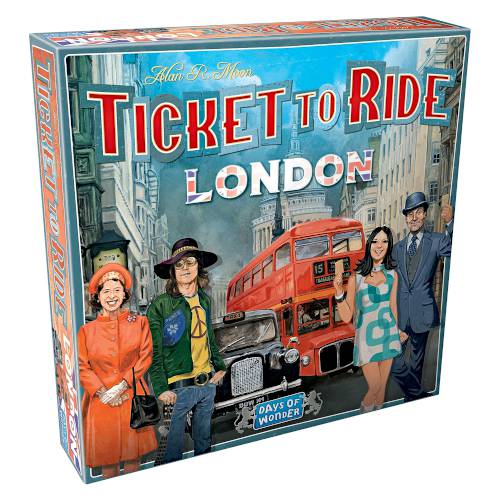
Ticket to Ride is one of the most popular board games in the world, but you'll have to pay a pretty penny for it—most versions of the game cost somewhere between $40 to $60.
But then there's Ticket to Ride: London, which distills the usual 60-minute experience down into about 15 minutes and is available at retail for under $15. The overall map is smaller and the routes are simpler, but the core gameplay is the exact same.
All in all, Ticket to Ride: London is one of the best value board games available today—and it's one of my favorite games to play with just two players. The small map makes for fun interactions!
1. The Crew: Mission Deep Sea
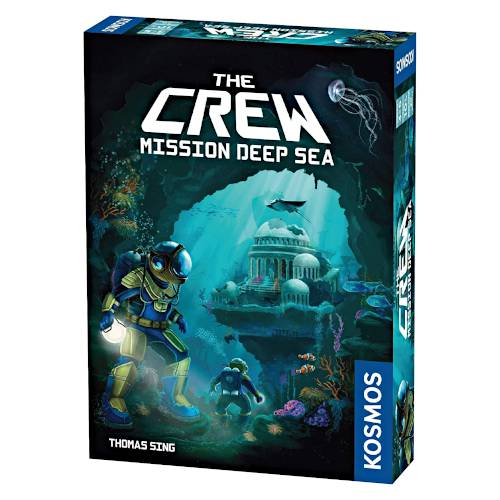
The Crew: Mission Deep Sea isn't just the best game in its price range—it's easily one of the greatest games ever released. This is an instant classic that will be around for years and years to come.
If you like trick-taking card games (e.g. Hearts, Spades, Euchre) and if you love cooperative games, then you'll love The Crew, which puts a fully cooperative spin on trick-taking gameplay.
At the start of each hand, a few task cards are randomly chosen and then drafted by players. Examples of tasks include "Win a trick using a 3" and "Win exactly three tricks, all in a row." (Difficulty can be adjusted by increasing or decreasing the number of task cards.)
With limited communication, players must play their cards to not only accomplish their own tasks, but also help others accomplish their tasks. Every single task must be completed to earn a shared victory.
A hand of The Crew only take a few minutes, but you'll want to play again and again because the countless combinations of task cards make for infinite replayability. It is, hands down, a must-have in any collection.
